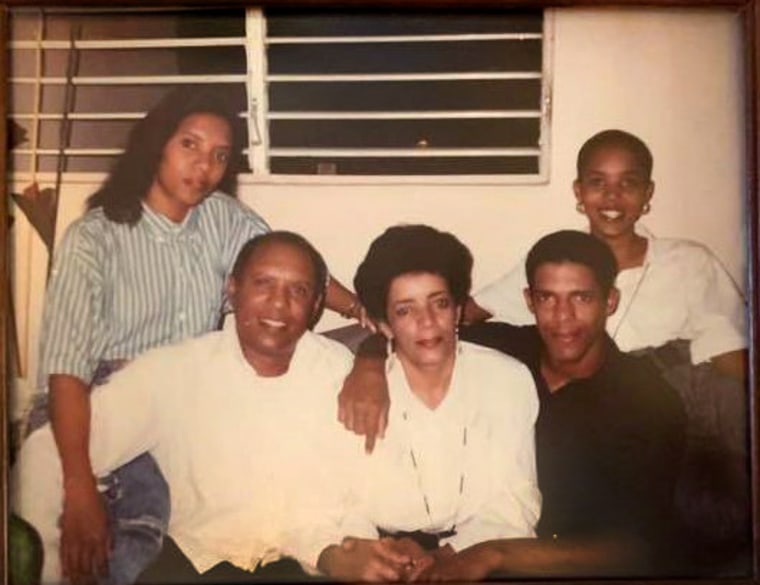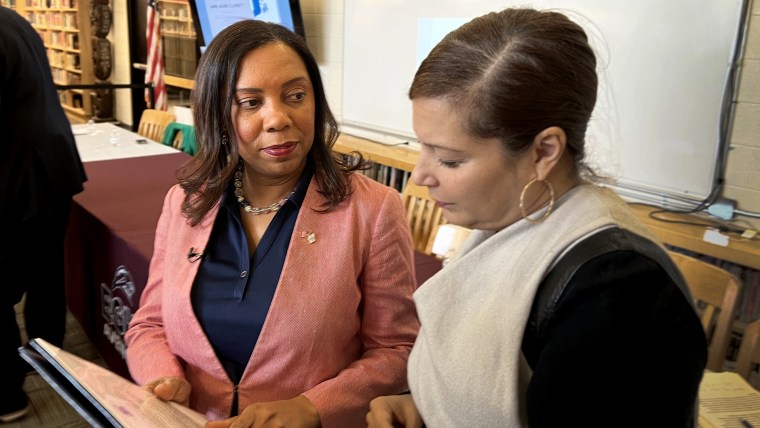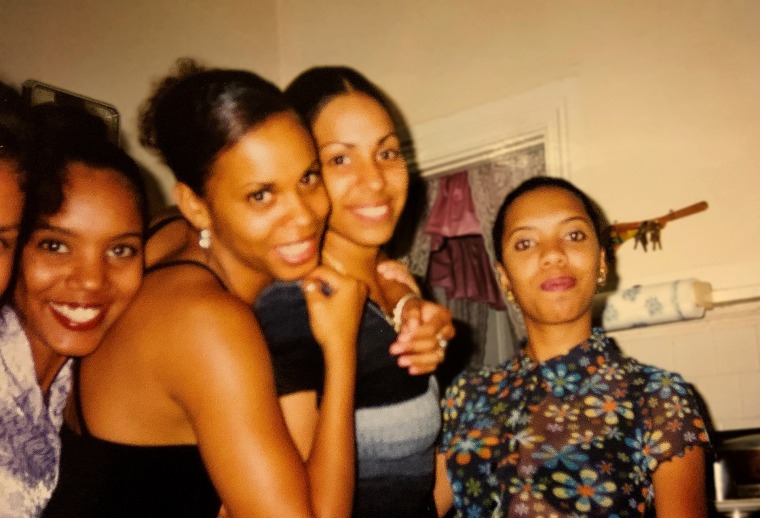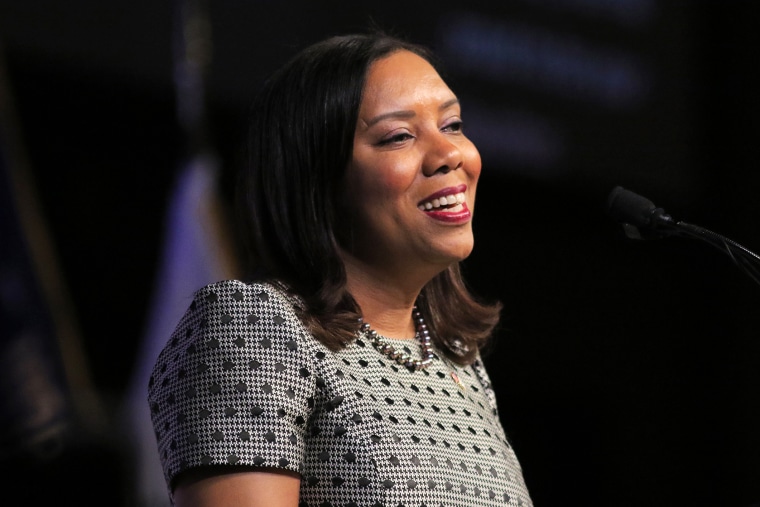When Sabina Matos came to the U.S. from the Dominican Republic at the age of 20 without knowing any English, she didn't think she would be staying.
That was then.
Almost three decades later, Matos, 49, has made history as Rhode Island's first Dominican American and first Afro Latina lieutenant governor — as well as the first Black woman to hold statewide office in Rhode Island and the state's second female lieutenant governor.
She's also one of the nation's first Afro Latinos in a state leadership position.
“In the Latino community we have to learn to value and recognize our African heritage more. It is not always valued,” she said in an interview with Noticias Telemundo.
Matos was born and raised in the Dominican Republic, in Paraíso, Barahona, in the southwest. Her mother was a teacher and her father was mayor of Paraíso. She had a childhood “with a lot of love and a lot of sense of community,” Matos said.
“My house was a place where people always went when they needed help with something, they always went there and I always have those memories of my parents,” she said.

In 1994, the family immigrated to New York, where she worked in a factory, later moving to Providence, Rhode Island.
“My dad is here and everything I’ve been able to achieve has been thanks to him and my mother, and their sacrifices,” Matos said.
When her family first got to the U.S., as she told The Providence Journal, “we arrived in April and I said that I would return by December.” But she managed to learn the language, stay and earn her degree from Rhode Island College.
In neighborhoods with a Latino majority like Olneyville, in Providence, where Dominicans like her and a growing number of Central Americans live, Matos first began working for community organizations, later representing her neighbors on the Providence City Council.
Her Spanish accent when she spoke English made her doubt whether she should enter politics, a fear that followed her until she was appointed lieutenant governor in April 2021.
“There are always the comments about whether you really deserve to be where you are. Did you work hard enough to get there, to be in the position,” Matos said. “Many people were making comments about my hair, my skin color, my accent... We always have to work twice as hard to achieve respect.”
But the complexes she felt, she assured, are fading.
“I am now at a stage where I feel that I am not interested in eliminating my accent. I believe that my accent makes me [as I am], and it says a lot about my history, about who I am,” she said.
“I don’t want to end up in a bubble”
In May 2017, Matos became Providence’s interim council president, serving until December of that year. In January 2019, she was elected City Council president.
In April 2021, she was appointed by Gov. Dan McKee as lieutenant governor; Gina Raimondo had resigned as governor to join the Biden administration, making McKee, who had been her lieutenant governor, the state's chief executive.
In the fall of 2022, Matos was elected lieutenant governor after defeating two Democratic challengers in the primary and then Republican Aaron Guckian and independent Ross McCurdy in November, garnering 51.2% of the vote.
“Having received more than 170,000 votes from the residents of the state of Rhode Island, that was very exciting, knowing that the people of the state are trusting me so that I can represent them for these four years,” Matos said.
An important goal for the Latina lieutenant governor is improving access to quality affordable housing, especially for the state's growing Hispanic community.
“We live in neighborhoods that often have lower quality housing, with few resources available to them," she said. "For many years we have not been building enough housing and that has created a crisis. Now it is difficult to find a place that is accessible for a family, to live."

Matos touts the passage last year of a law allowing the state to issue driver’s licenses to people who lack legal immigration status; it will go into effect in July. Only 18 states have passed similar laws.
In the release announcing the new law, Matos thanked the sponsors of the bill and community leaders, adding that the "reasons for making this investment are numerous, well documented and supported by facts." She said it would enable 29,000 Rhode Island taxpayers to have legal and safe access to the state's roads.
Having had the opportunity to legally come to the U.S. as an adult and recognizing the privileges she and her family enjoyed keeps her connected to what she says is most important — a connection to the people she serves.
“I don’t want to end up in a bubble and not be in touch with what’s going on, on a day-to-day basis. And I try to be very intentional about maintaining my relationships with the different community groups and with the people in the community who helped me to get here where I am," Matos said.
“It’s not something I did by myself”
Beyond hard work, Matos credits her success to her parents and the education she was able to receive — as well as to community support.
“I got here, but you don’t see all the people who came before me, who worked very hard to make sure that the Latino community participated in the civic process. ... It’s not something I did alone, but with the support of the community and the people who came before me.”

There were obstacles. There were the years of waking up at dawn, like many other immigrants working in factories and other labor. She faced racism, including from Latinos, even though they weren't conscious of it, she said.
“You don’t see yourself identified on television, in the movies you don’t see yourself,” she said. “The black Latino community doesn’t see itself as represented. And now that has been changing more.”
As a young woman, she sometimes had a hard time seeing the value of her heritage as a Black woman, she said. Now, from her leadership position, Matos seeks to help others so they don't have to hide who they are and where they come from.
“One of my main missions is to open the doors so that our young people see that it is possible, that they can achieve it,” Matos said, “but also so that our immigrant community knows that they too can achieve it.”
